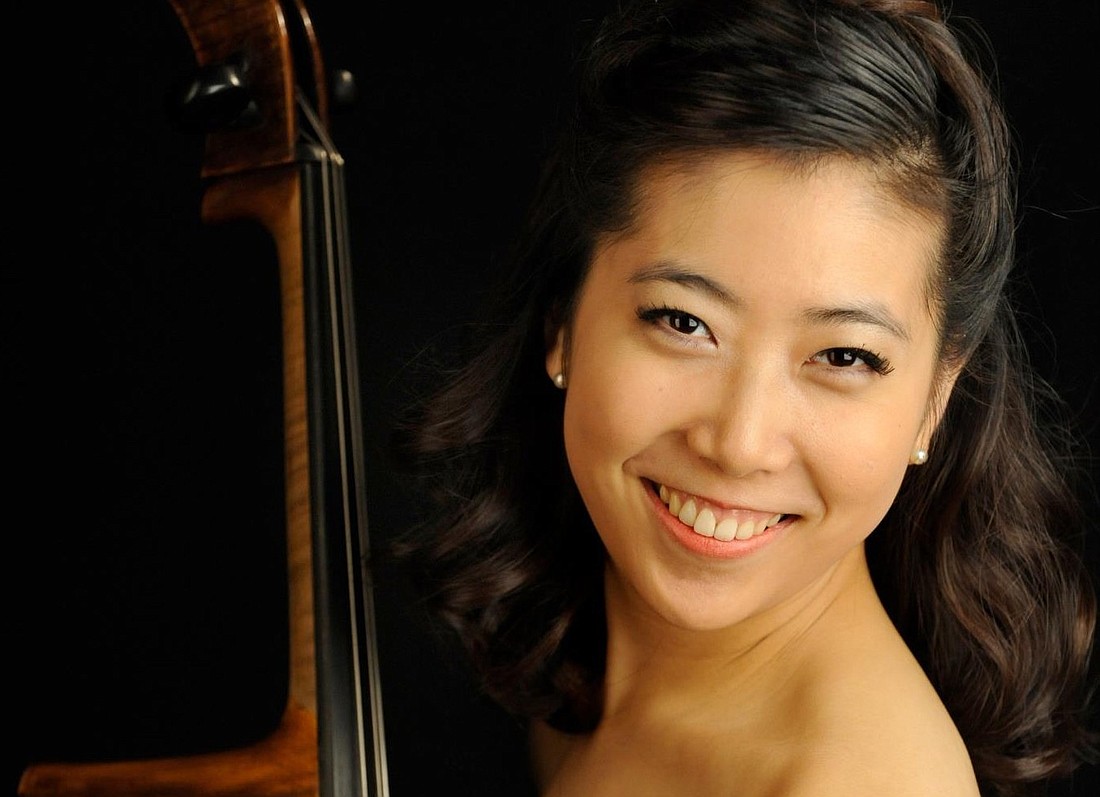- November 23, 2024
-
-
Loading

Loading

Of the several music festivals in Sarasota that feature the performance of chamber music in addition to teaching and orchestral concerts, La Musica Music Festival, which opened its 31st season last week at the Sarasota Opera House, is strictly chamber music performance. This years series of four concerts opened with youthful compositions of three well-known composers, Mendelssohn, Webern, and Richard Strauss. Yes, youthful, even though Mendelssohn was all of 30 years old when he wrote his "Piano Trio in D minor," the opening work of the evening.
Overshadowed perhaps only by his magnificent Octet, Mendelssohn’s D minor trio is one of his most performed chamber works, here played by Federico Agostini, violin, Antonio Meneses, cello and Derek Han, piano. After a somewhat staid and tentative beginning, the performance grew bolder in the later movements, especially the typical Mendelssohn Scherzo and Finale. However, the warm sounds of both violin and cello tended to be overpowered by the piano, especially in the forte sections.
Anton Webern’s “Langsamer Satz” for string quartet introduced us to a Webern few knew existed. Composed before he delved into the atonal 12-tone world of composition, this piece is pure unabashed romanticism, complete with languid themes and lush harmonies, beautifully performed by Claudio Cruz and Cecilia Ziano, violins, Bruno Giuranna, viola and especially JeongHyoun Lee, cello. Composed in 1904 at the age of 21 and lost for years, only to be performed in 1962, the “Langsamer Satz” must have been quite a revelation for both players and listeners when it surfaced.
Closing this opening concert was the youthful "Piano Quartet in C minor" by Richard Strauss, given a rousing performance by Claudio Cruz, violin, Bruno Giuranna, viola, JeongHyoun Lee, cello, and Derek Han, piano.
Richard Strauss completed this quartet when he was 21, three years before he wrote his career-changing “Don Juan” for full orchestra, but it already has the sweeping melodies, rich harmonies and musical exuberance featured in his later works. Even though there are homilies to Brahms, his idol of the moment, the piece is pure Strauss, through and through. The thoroughly energetic and compelling performance radiated the energy and inspiration of the young Strauss, especially in the Scherzo which had hints of “Til Eulenspiegel,” yet to appear in a few years. The lovely third movement was the precursor of an elegant Strauss song at its best, and the final Allegro Vivace allowed all to display their musical wares to the fullest.
All in all, a good opening for this venerable chamber music series, and it’s unfortunate that the audience couldn’t have been larger to enjoy this fine musical evening.